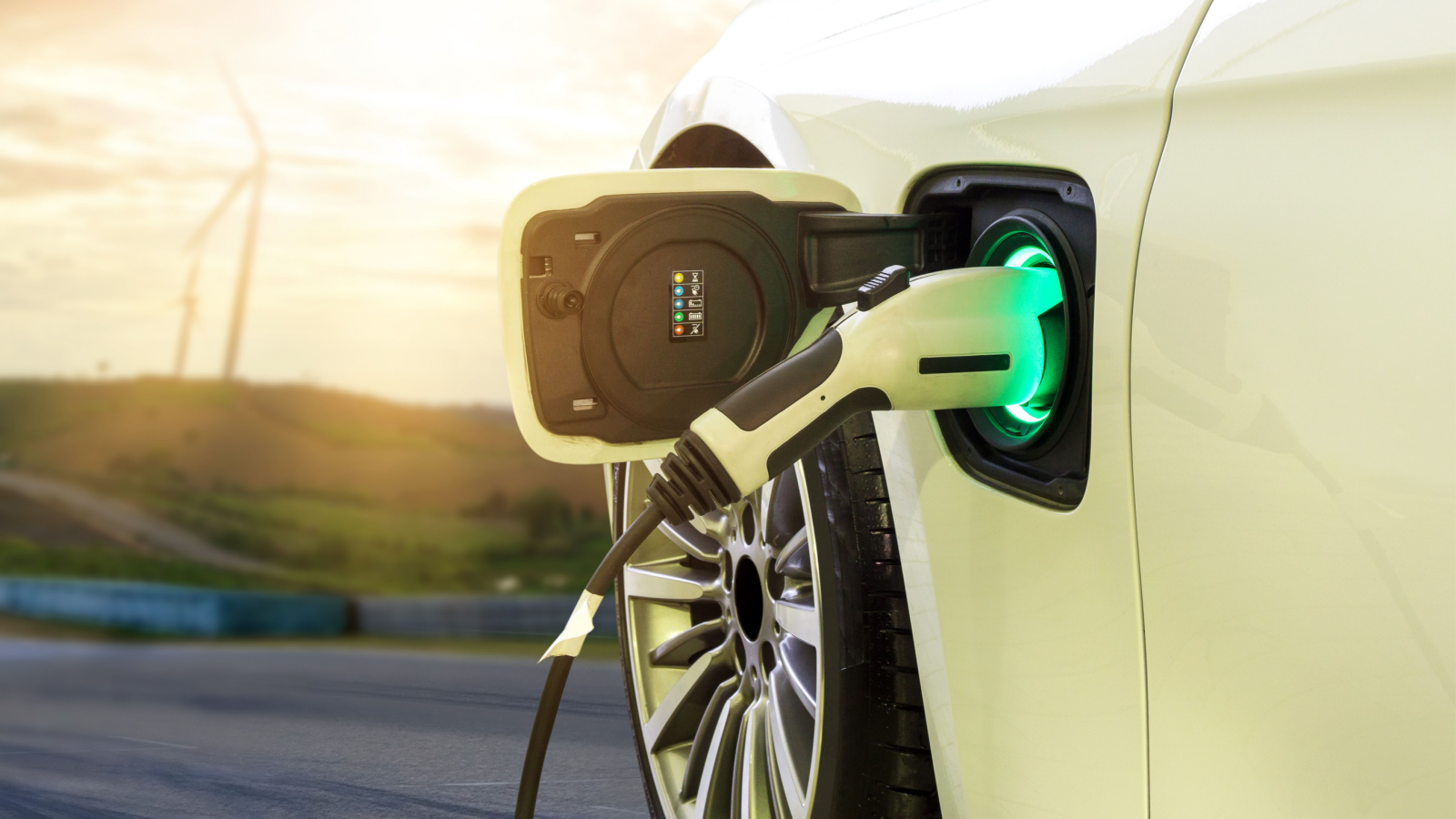The EV sector continues to undergo a period of extreme difficulty. EV sales growth is slowing, adoption rates are not as high as they once were, and global demand has weakened severely. All of those factors suggest that investors should purge their portfolios of these EV stocks to sell.
It’s still too far too early to even begin to suggest that the EV experiment has failed. It almost certainly hasn’t. The current state of the industry is well explained by Roger’s Innovation Adoption Curve.
While the broader industry will survive, there are many fundamentally weak EV stocks that will not. We will be discussing those weaker performers here. Many of these shares are no-brainer sells. Others are not so obvious.
Let’s take an in-depth look at each of those seven EV stocks to sell.
Canoo (GOEV)

It’s very easy to take a look at Canoo (NASDAQ:GOEV) stock and find a litany of reasons suggesting that it will fail. Let’s start with immediate recent news and then move on to longer term indications.
Shares recently dropped by 26% after the company released earnings and very weak sales. The company reported a pre-ebitda loss of $54.6 million on $367,000 in sales. Wall Street had been anticipating 700,000 in sales and investors punished GOEV shares as a result.
Those results are simply a recent indication of a more permanent problem. Canoo is simply a poorly run company overall. Those weaknesses are evidenced by metrics that are almost all very poor relative to its competitors. The company is in clear distress and faces very real risk of bankruptcy in the near term.
Any potential rebound will take years to materialize if the company can somehow unburden itself of continued losses. It’s a much better idea to simply avoid Canoo as it flirts with bankruptcy.
Mullen Automotive (MULN)

Mullen Automotive (NASDAQ:MULN) continues to attempt to carve out a successful nicheIn the EV van segment. That differentiation is theoretically the soul saving grace for the stock. Realistically, it isn’t going to matter.
The only important narrative that potential investors should understand is that the company is bound for further dilution. It has remained consistently unable to maintain listing requirements on the Nasdaq. Then it enacts reverse stock splits intended to artificially inflate prices. Instead, those efforts result in dilution. Investors – at least the wise ones – realize what’s going on and the stock again moves lower.
That’s exactly what investors should expect from here on out. The company recently announced streamlining efforts intended to reduce costs. Investors would be foolish to believe that mon Automotive suddenly has the capacity to operate well. Recent cost savings announcements are a little more than a marketing ploy. Fool me once, shame on you. Fool me twice, shame on me. It’s too little too late.
This make it one of those EV stocks to sell.
Fisker (FSR)

Fisker (NYSE:FSR) is a once promising EV stock quickly headed for bankruptcy. I continue to be amazed at the downfall of Fisker. I was among investors who thought that its outsourcing strategy would greatly benefit the company in the long term.
However, Fisker’s choice to outsource the production of its Ocean SUV to Magna International (NYSE:MGA) has not resulted in quality vehicles.Those vehicles are facing no less than three separate safety probes from the National Highway Traffic Safety Administration.
Reservation cancellations have topped 40,000 overall. The once promising company is now very close to bankruptcy. Shares are currently in the process of being delisted from the New York Stock exchange. Following a full delisting on April 22, shares now trade over the counter. The decline is among the most rapid EV investors have seen yet. I personally would have expected either of the two companies immediately above to fold before Fisker. Nevertheless, avoid Fisker which has lost nearly 100% of its value.
Workhorse (WKHS)

Workhorse (NASDAQ:WKHS) is another clearly distressed EV stock that no self-respecting investor should touch.
My colleague Chris MacDonald highlighted that distress in a recent article. He was quick to point out the fact that Workhorse has added $80 million to its net losses over the past 9 months. Meanwhile, the company has only made $8 million in sales over that period. He also agreed with me that at least two of the three EV stocks covered above are to be sold. That isn’t to imply that we know anything that any other investor doesn’t: these are just plain old weak stocks.
Beyond that, there are quantitative metrics that are also highly suggestive of a real possibility of Crash and Burn types scenario. Workhorse’s Altman Z-score stands at -9.09. Anything below 1.8 is indicative of a distinct possibility of bankruptcy within the next two years. Investors should not be surprised if and when Workhorse fails.
Nikola (NKLA)

Let me give you at least two reasons why Nikola (NASDAQ:NKLA) stock is going to ultimately fail. Let’s first start with that Altman Z-score that we just discussed. Nikola’s score is also negative and currently stands at -4.18.
Remember, anything below 1.8 suggests that a company is at risk of failure within the next 2 years. The example of Fisker shows that such downfalls can occur very rapidly and are highly unpredictable. Anyway, Nikola is clearly at risk based on that measure.
The other point to note is that Nikola is expected to pursue a reverse stock split in the near future. The company recently filed a proxy statement meaning it intends to suggest the moves at an upcoming shareholder meeting. Reverse stock splits almost always result in dilution for current shareholders.
As bad as that is, Nikola is also considering Increasing the amount of common stock available for issuance. That will result in earnings being distributed to a greater number of parties overall, further weakening the stock. All in all, this makes it one of those EV stocks to sell.
General Motors (GM)

General Motors (NYSE:GM) stock is at little risk of an absolute crash and burn scenario. The company is one of the best examples of the too-big-to-fail era. I’m not suggesting that it’s headed for a similar fate again. Instead, I just want to know that it is highly unlikely to run to zero unlike other stocks discussed above.
Anyway, General Motors is a weak EV stock. Of course, General Motors is primarily a traditional vehicle manufacturer. The company has made strong efforts to bring EVs into the fold but that has thus far been unsuccessful.
The point I’m trying to make here is that those efforts are going to continue to harm GM stock moving forward.
Let me also state that I’m generally not a fan of General Motors vehicles. Build quality is not strong. That goes for its internal combustion engine vehicles and its electric vehicles. GM’s Cadillac lyric EVs are being investigated for brake failure issues. The company was also forced to stop selling its Chevy Blazer EV in late 2023 following significant software issues. GM is unlikely to fail. Conversely, it’s also unlikely to thrive on the strength of its EVs.
Lucid (LCID)

Lucid (NASDAQ:LCID) is trying to convince stockholders and investors that the EV stock is worthwhile. It isn’t. A bevy of headlines touting Lucid’s recent record sales doesn’t mean much. The company delivered 1,967 vehicles in the most recent quarter. That was slightly more than the 1,932 vehicles it delivered during the fourth quarter of 2022.
The company is still projecting approximately 9,000 vehicle deliveries this year. Lucid delivered fewer than 8,500 vehicles in 2023. Those deliveries resulted in an overall loss of $2.8 billion. Let’s assume Lucid manages to find some efficiencies this year and reduces its losses. Will it matter? Probably not. Lucid will likely produce and deliver a few hundred more vehicles in 2024 than it did in 2023. it’s logical to then assume that the company will again produce losses into the billions.
Lucid probably won’t fully fail given the substantial backing it has. However, there’s little reason to believe that it will improve this year and perhaps beyond.
This concludes my list of EV stocks to sell.
On the date of publication, Alex Sirois did not have (either directly or indirectly) any positions in the securities mentioned in this article. The opinions expressed in this article are those of the writer, subject to the InvestorPlace.com Publishing Guidelines.
